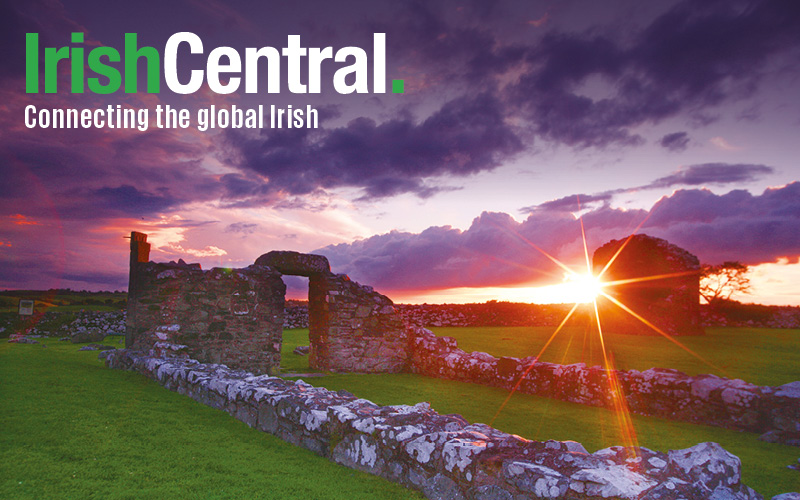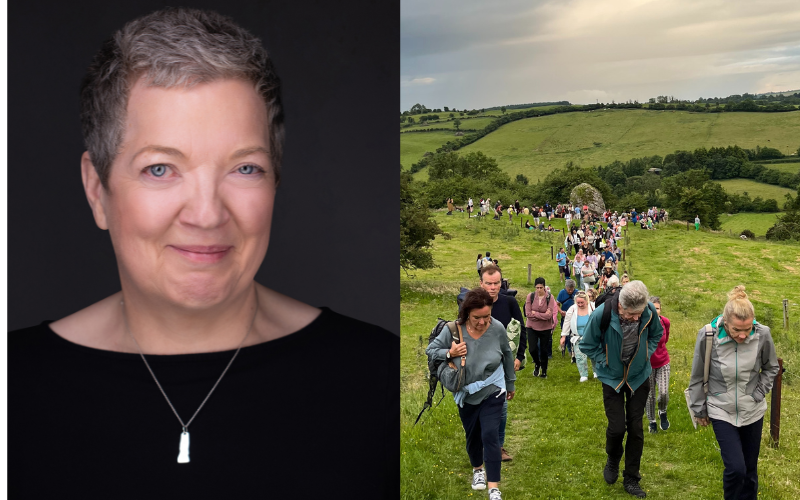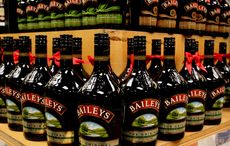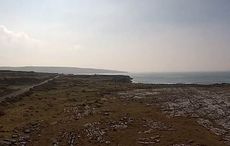DO you remember a time when Shane MacGowan had a working set of choppers? How about the time you heard bands like the Saw Doctors and Black 47 for the first time?
Here's something that makes you feel old - those bands are about to mark their 20th anniversaries!
While seeing those bands today is still a nice kick, when was the last time you got knocked over the head with fresh new music in the Irish rock genre?
Your wait is now over, though. The music of Biblecode Sundays takes you back to that time, offering a wildly original voice to the Irish rock genre with their CD Ghosts of Our Past.
Led by Elvis Costello's kid half-brother, Ronan MacManus, Biblecode Sundays bring that famous sibling's defiant energy while neatly avoiding any comparisons. Songs like "Pirates of Clew Bay" and "See You at the Crossroads" have a big, meaty rock undercurrent that flows beneath banjos and flutes; if Bruce Springsteen snorted some Lucky Charms, it might sound something like this.
The band can put down the whiskey long enough to write a tearjerker that will hit every Irish immigrant in the gut. "The moonlight where we used to walk/I left you standing there/I left you alone/I could swear the my sorrow you could see from my shadow," MacManus sings to his lover before he boards "the coffin ship to New York" on the gorgeous "Mayo Moon."
This six-piece band of "Irish Londoners" are music industry veterans who have been breaking festival records in the U.K. and Europe. The group is led by McManus, Andy Nolan (ex-MacGowan and the Popes) on accordion, Carlton Hunt (ex-Bad Manners) on drums, Enda Mulloy (son of Tom from the legendary Mulloy Brothers) on harmonica, bass and vocals, Joe Moran (ex All-Ireland champion) on flute, whistles, guitar and vocals and one of the best young fiddle players in London, Patrick Franklin.
I first caught a glimpse of the band last year during a raucous, unforgettable set at Rocky Sullivan's, where they were playing to small crowds in an attempt to build a fan base over here.
They literally shredded their instruments. There was only one string on Ronan's guitar when he walked off the stage.
They were selling the U.K. release of Ghosts of Our Past at the merchandise table at the time, but they have since revamped and remixed each song for their proper U.S. release on Cosmic Trigger Records (cosmictriggerrecords.com).
"We revisited the album when we thought it was being released," says MacManus. "We pulled out the guitar parts out there that we didn't properly release before.
"We learned a lot since we recorded our album and we put that into this revamped recording. We were just finding our feet back then, and we wanted another chance to give it a harder edge."
They needn't have bothered. While this version of the CD sounds brighter than the original, the stellar songwriting takes front and center stage over the production.
The album is released on iTunes and through Cosmic Trigger Records, and MacManus is stoked to make new friends on this side of the Atlantic. I spoke to him over the weekend about growing up in a musical family and thriving in a dying London pub scene; here's how it went.
I read where the pubs are literally drying up in England, with closures every day. How does that affect an Irish pub band like yourself?
The financial crisis hasn't been touching us at all. We're booked every night. People will always find money for a drink. I also think the tougher the times get, the more people will need to go out for a good night.
Have you played over in Ireland and if so, what is the reaction? How do English and Irish audiences differ from the ones here in the States?
We haven't done that many gigs in Ireland. We play during holidays sometimes when we visit Mayo.
Birmingham and Manchester is really where our fan base is. Australians seem to dig our music.
I think that we are Irish exiles, and we are more appealing to the fellow exiles in London and American. When we played at Boston it was so like what we were used to that we didn't think there were any differences at all.
I've gotta ask the obligatory Elvis Costello question - what was it like growing up with him and what does he think of your music?
Declan (Elvis's real name) was already famous by the time I was a year old. All the brothers played. Declan was from my dad's first marriage, then there are four of us from the second marriage. Four brothers in five years. We have a drummer, flutes, and the like.
We would always be singing and my dad liked everything from the Wolfe Tones to Miles Davis. He really gave me a rich musical palette to choose from.
The Irish stuff was the first thing he lashed on it. He encouraged us to keep the tradition alive, and that culture is in my blood. For our future, it's important to embrace our past.
I don't see Elvis all that much. He's got his native New Yorker sons and divides his time between here and there. When we do connect, he always gives me encouraging words.
I saw him twice - once as a support to The Police this summer, which was a great performance of hits. The other time was on his own a few years ago, and he played all of this obscure stuff that was lost on most of the audience.
When he plays for his audience he can be more indulgent. They are geeky nerdy people that know everything, so he can play that. I should know: I am one of his geeky fans! He really has written some pretty amazing stuff. My dad told us that at the end of the day we are there to entertain the crowd.
What does dad think of your music?
He loves it. He did a poem. He wrote a song called "Stranger In My Land" about his trip back home to Dungannon, County Tyrone. It was a weird feeling for him. He always felt a connection with the town and when he got there, he realized that he no longer belonged there. That's something many of us can identify with, and those are the stories we try to tell in our songs.




Comments